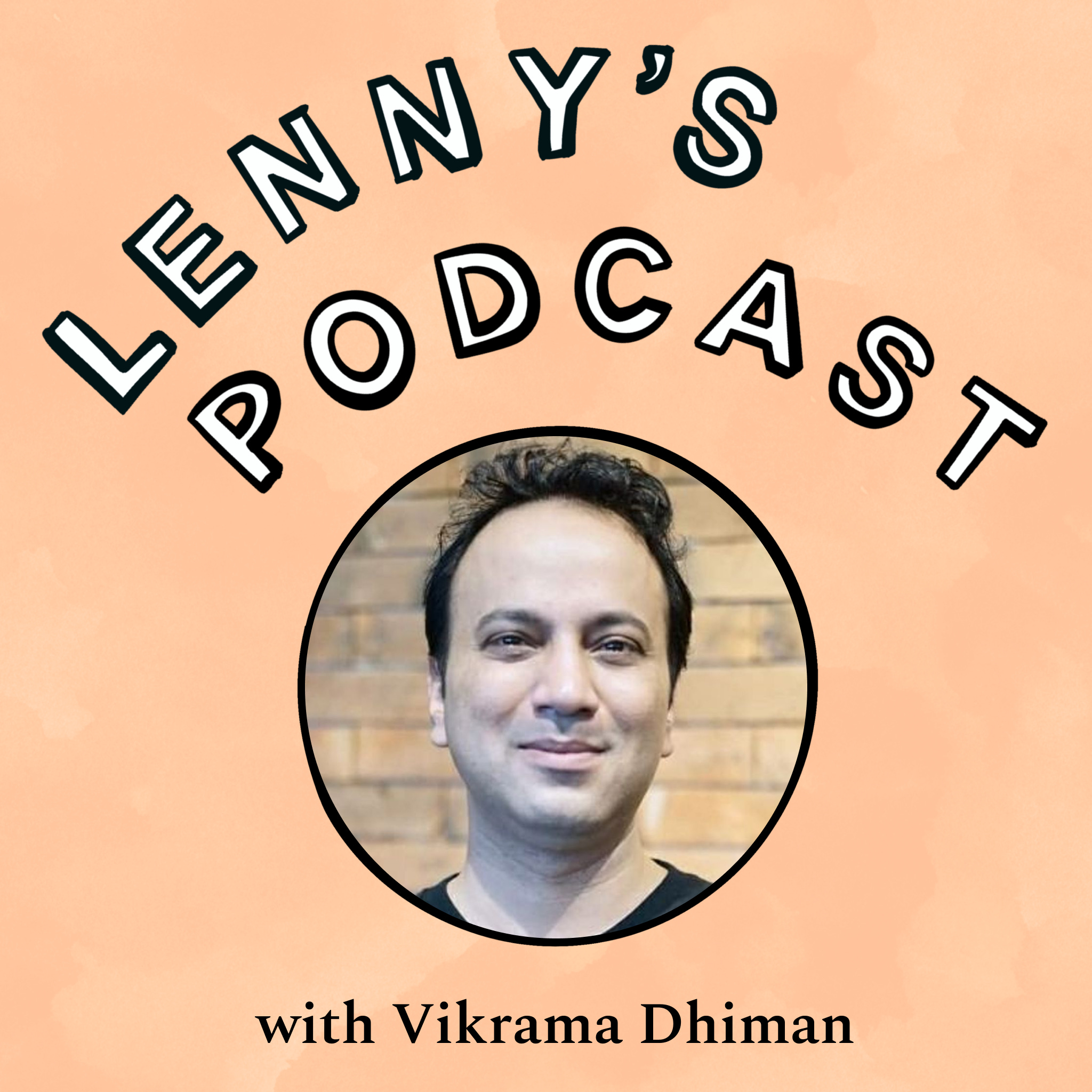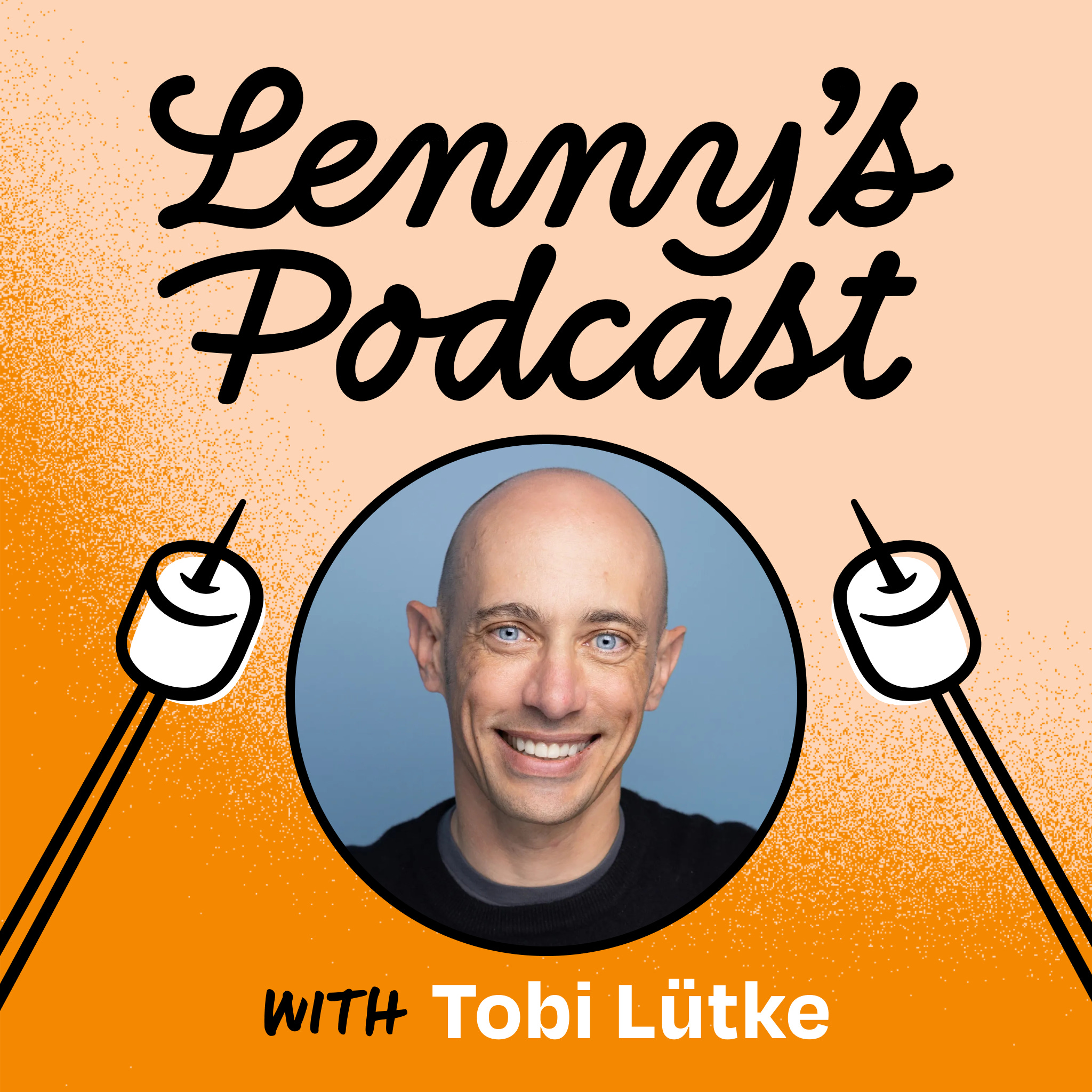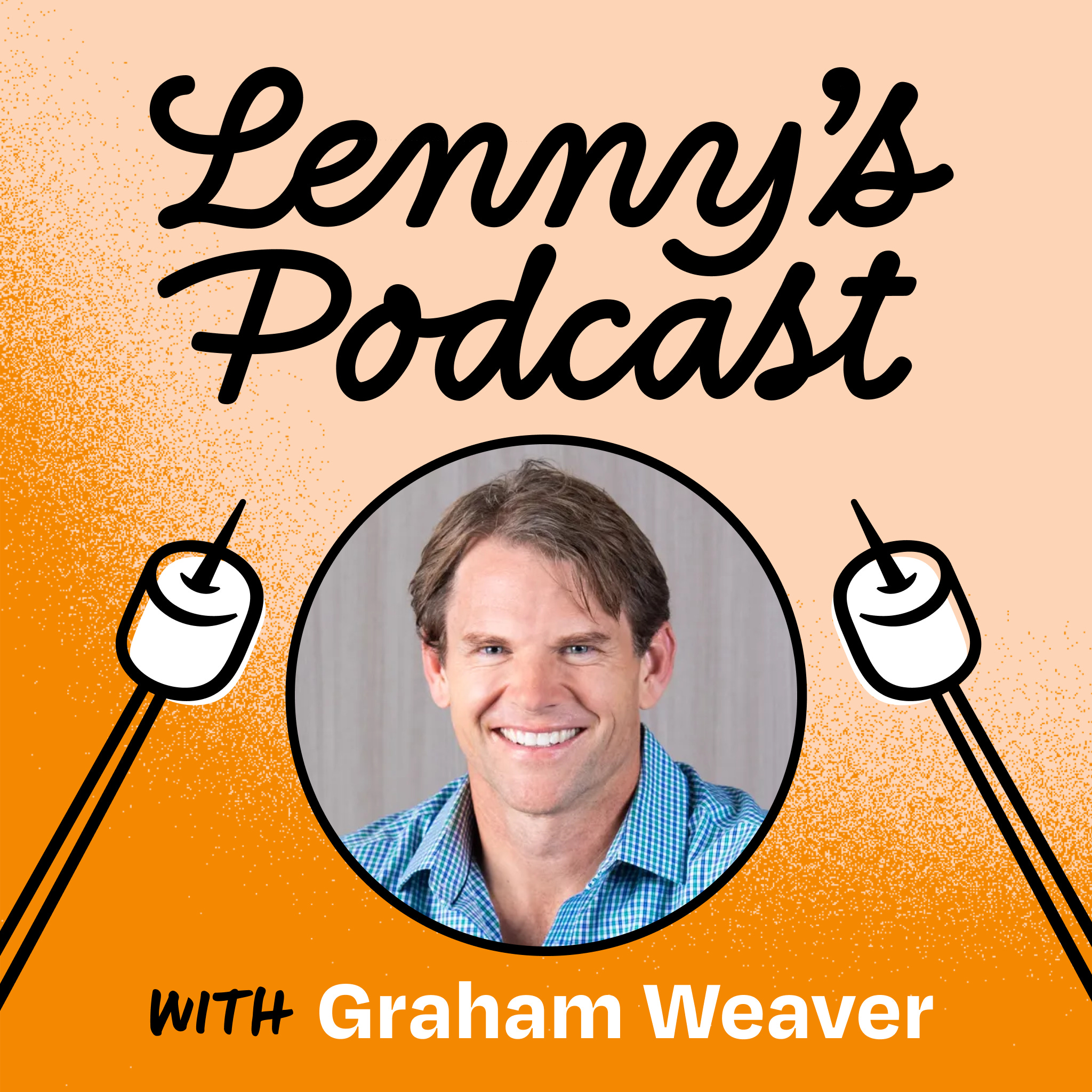
May 12, 2024 • 1hr 12min
A framework for PM skill development | Vikrama Dhiman (Gojek)
Lenny's Podcast: Product | Growth | Career

Key Takeaways
- The "Three W's" framework for PM career growth:
- What you produce (outputs and outcomes)
- What you bring to the table (impact on impact)
- What's your operating model (how you work with others)
- Focus on execution and outputs early in your career rather than obsessing over strategy and impact
- Produce high-quality artifacts like PRDs, product notes, and strategy docs to demonstrate your value
- Three tenets for working well with others as a PM:
- Raise difficult issues without being difficult to work with
- Bring out important topics without drawing importance to yourself
- Be in charge of getting decisions made, not making all decisions yourself
- Three mindset shifts that enable faster growth:
- Focus on things you can control
- Maintain a positive relationship with change
- Be aware of how you see yourself
- Eight key axes for PM skill development: data, design/research, technology, strategy, communication, collaboration, organizational skills, community
- Pick 1-2 focus areas for skill development at a time rather than trying to improve everything at once
- Intent alone is not enough - your actions and behaviors must also align
- Putting in effort and hours is still important for growth, even if it's not politically correct to say
Introduction
In this episode, Lenny interviews Vikrama Dhiman, who heads all things product at Gojek across Indonesia, Singapore and India. Vikrama is known as one of the most insightful product leaders in Asia, with a strong reputation for building product talent and helping people transition into product management roles.
The conversation covers Vikrama's frameworks and advice for product management career growth, common traits of successful PMs, pitfalls that hinder career progression, and insights on the ambiguity of the PM role. Vikrama shares his "Three W's" framework and discusses the key skills and mindsets needed to thrive as a product manager.
Topics Discussed
The "Three W's" Framework for PM Career Growth (05:05)
Vikrama introduces his framework for product management career growth, which consists of three key elements:
- What you produce: Focuses on outputs and outcomes
- What you bring to the table: Your impact on impact
- What's your operating model: How you work with others
He emphasizes that strong product managers excel in at least two of these areas, while those who rise quickly in their careers perform well across all three.
Focus on Outputs Early in Your Career (07:09)
Vikrama advises that early in one's career, it's crucial to focus on outputs rather than obsessing over impact and strategy. He explains:
- Start by concentrating on tangible outputs like launching products, analyzing experiments, or contributing to go-to-market strategies
- As you become comfortable with outputs, gradually move towards owning outcomes and product areas
- Even as you progress to more strategic roles, continue to hone your craft on outputs
"Focus on outputs at the start of your careers. And don't forget outputs even when you grow in your career." - Vikrama Dhiman
What You Bring to the Table: Impact on Impact (15:40)
Vikrama discusses the importance of demonstrating your value beyond just working on impactful products:
- Produce high-quality artifacts like PRDs, product notes, and strategy documents
- Show progress across four key pillars: data/metrics, design/research, technology skills, and strategy
- Demonstrate your impact through the quality of your work and how you contribute to the team's success
"You must have that impact through the artifacts that you work on." - Vikrama Dhiman
What's Your Operating Model: Working with Others (18:58)
Vikrama emphasizes the importance of how product managers work with others, especially as they progress to more senior roles. He outlines three key tenets:
- Raise difficult issues without being difficult to work with
- Bring out important topics without drawing importance to yourself
- Be in charge of getting decisions made, not making all the decisions yourself
He notes that while these principles are easy to state, they can be challenging to embody consistently in day-to-day work.
Improving Output Quality and Quantity (21:49)
Vikrama provides advice on how to improve the quality and quantity of outputs as a product manager:
- Focus on both the breadth and depth of your work
- Channel questions and inputs into strategic choices that shape discussions and direction
- Avoid simply bringing arguments or debates to the table
The Art of Pushback (23:26)
Vikrama discusses how to effectively push back on ideas without being seen as difficult to work with:
- Bring the conversation to a more logical space from an emotional one
- Focus on advancing the product, direction, and execution forward
- Ensure your team is unblocked and not working on unnecessary tasks
Common Factors That Impede Career Growth (26:55)
Vikrama identifies three key mindset shifts that can enable faster growth or hinder progress if not addressed:
- Focus on what you can control: Avoid obsessing over things outside your influence
- Maintain a positive relationship with change: Continuously seek ways to increase your rate of change and growth
- Be aware of how you see yourself: Check for limiting stories you tell yourself about your abilities and role
He emphasizes the importance of continually learning and seeing yourself as a learner to enable growth.
Vikrama's Personal Reflections (33:39)
Vikrama shares personal experiences of recalibrating his self-assessment and the importance of staying humble:
- Realizing his data skills weren't as strong as he thought when joining Gojek
- Learning to be a "mindful agency" person rather than just high agency
- The value of interacting with people smarter than you to stay grounded
Choosing Which Skill(s) to Focus On (39:33)
Vikrama provides guidance on how to choose which skills to develop:
- Pick the area that gives you the maximum leverage in your current role
- For those starting out, choose between data and tech, plus one from design/research and strategy
- If coming from a design/research background, focus on data or tech; if from data/tech, focus on design/research
- Once you've demonstrated proficiency in two of the three (data, tech, design/research), start focusing on strategy
The Ambiguity of the PM Role (46:28)
Vikrama addresses the confusion surrounding the product management role and how to navigate it:
- Recognize that different companies and teams may define the role differently
- Focus on your contribution and output rather than trying to define the exact boundaries of the role
- See yourself as playing a role rather than adhering strictly to a title or function
- Understand that you are the unique collaborator across multiple disciplines (strategy, technology, design, data)
The 8 Axes for PM Growth (51:47)
Vikrama outlines eight key areas for product managers to focus on for skill development:
- Data
- Design/Research
- Technology
- Strategy
- Communication
- Collaboration
- Organizational skills
- Community
He emphasizes the importance of the community aspect, especially for remote and distributed teams.
Contrarian Corner: Why Intent Alone is Not Enough (56:57)
Vikrama shares two contrarian beliefs:
- Intent is not enough: Your actions, behavior, and communication must also align with your intentions
- Effort and hours still matter: Putting in the time and effort is crucial for growth, even if it's not politically correct to say so
"Intent is not enough. And that's the thing which I think a lot of people in my age group just don't get, but people who are slightly starting off their career, it resonates well with them." - Vikrama Dhiman
Lightning Round (59:30)
In the lightning round, Vikrama shares:
- Book recommendations: "Small Data" by Martin Lindstrom, "Originals" by Adam Grant, and "Thinking, Fast and Slow" by Daniel Kahneman
- Favorite recent movie/TV show: "Miss Congeniality" and "Schitt's Creek"
- Favorite interview technique: Brainstorming choices on an actual product the candidate uses often
- Recently discovered product: Short video apps that dub Chinese TV serials into English
- Life motto: "It's never too late to do what you want to do and what you want to be."
- Must-try food in Singapore: Visit a hawker center for a variety of cuisines
Conclusion
Vikrama Dhiman provides a wealth of insights and practical advice for product managers at all stages of their careers. His "Three W's" framework offers a structured approach to career growth, emphasizing the importance of outputs, impact, and effective collaboration. The discussion highlights the need for continuous learning, self-awareness, and adaptability in the ever-evolving field of product management.
Key takeaways include focusing on execution early in one's career, producing high-quality artifacts, developing a range of skills across multiple axes, and maintaining a growth mindset. Vikrama's personal experiences and contrarian views add depth to the conversation, challenging common assumptions about intent and effort in career development.
Overall, this episode provides valuable guidance for product managers looking to accelerate their career growth and navigate the complexities of the role. By focusing on tangible outputs, demonstrating impact, and cultivating effective working relationships, PMs can position themselves for success in this dynamic field.









